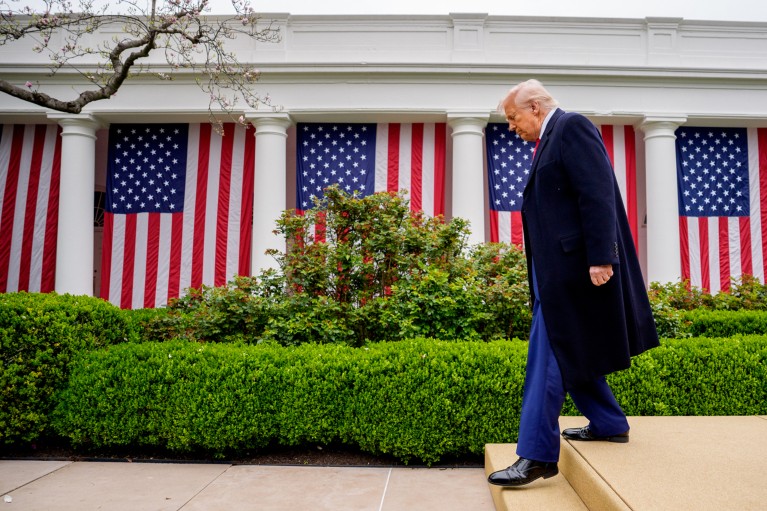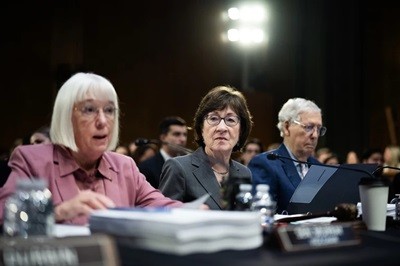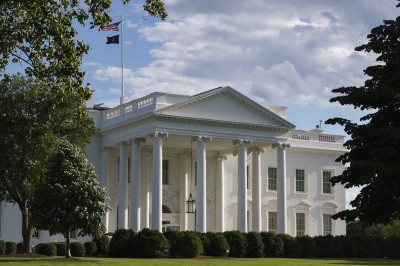
US President Donald Trump has used a series of executive orders to reshape US science.Credit: Andrew Harnik/Getty
US President Donald Trump issued an expansive executive order (EO) yesterday that would centralize power and upend the process that the US government has used for decades to award research grants. If implemented, political appointees — not career civil servants, including scientists — would have control over grants, from their initial solicitation to their final review. The order is the latest move by the Trump administration to assert control over US science.
‘Congress has your back’: US senators tell scientists they want to protect NIH budget
The new EO, titled “Improving Oversight of Federal Grantmaking”, orders each US agency head to designate an appointee to develop a grant-review process that will “advance the President’s policy priorities”. Those review processes must not fund grants that advance “anti-American values”, but prioritize funding for institutions committed to achieving Trump’s plan for ‘gold-standard science’. (That plan, issued in May, calls for the US government to promote “transparent, rigorous, and impactful” science, but has been criticized for its potential to increase political interference in research.)
Impacts might be felt immediately: the latest order directs US agencies, such as the National Institutes of Health (NIH), to halt new funding opportunities, which are calls for researchers to submit applications for grants on certain scientific topics. They will be paused until agencies put their new review processes in place.
Trump’s order comes after the US Senate — which, along with the House, ultimately controls US government spending — has, in recent weeks, largely rejected his proposals to slash the federal budget for science, a nearly US$200 billion annual enterprise.
The White House did not respond to questions from Nature about the order.
Negative reaction
Trump, a Republican, has previously used EOs, which can direct government agencies but cannot alter existing laws, to effect policy change. On his first day in office in January, he signed a slew of EOs with wide-ranging effects, from pulling the United States out of the Paris climate agreement to cutting the federal workforce, which included nearly 300,000 scientists before he took office.
Scientists and policy specialists have lambasted the latest order on social media. “This is a shocking executive order that undermines the very idea of open inquiry,” Casey Dreier, director of space policy for the Planetary Society, an advocacy group in Pasadena, California, posted to Bluesky.
Also on Bluesky, Jeremy Berg, a former director of the NIH’s National Institute of General Medical Sciences, called it a “power grab”. Speaking to Nature, he said: “That power is something that has not been exercised at all in the past by political appointees.”
Trump’s call for ‘gold standard science’ has prompted an outcry: here’s why
In a statement, Zoe Lofgren, a Democratic member of the US House of Representatives from California, called the EO “obscene”. The order could lead to political appointees “standing between you and a cutting-edge cancer-curing clinical trial”, she said.
The EO justifies the changes to the grant-awarding process by casting doubts on past choices: for example, it accuses the US National Science Foundation (NSF) of awarding grants to educators with anti-American ideologies and to projects on diversity, equity and inclusion, which are disfavoured by the Trump team. It also bolsters its argument by pointing to senior researchers at Harvard University in Cambridge, Massachusetts, and Stanford University in California who have resigned over accusations of data falsification.
Source link


